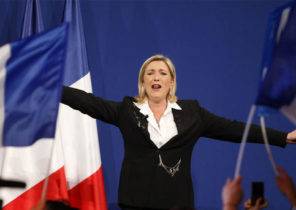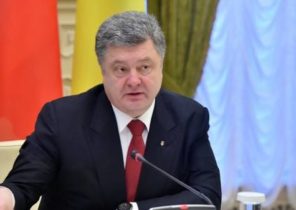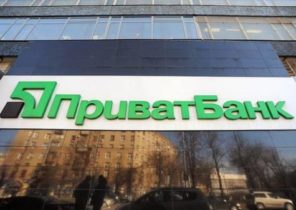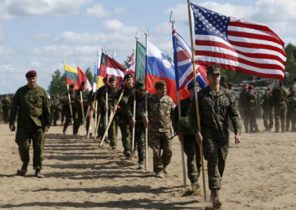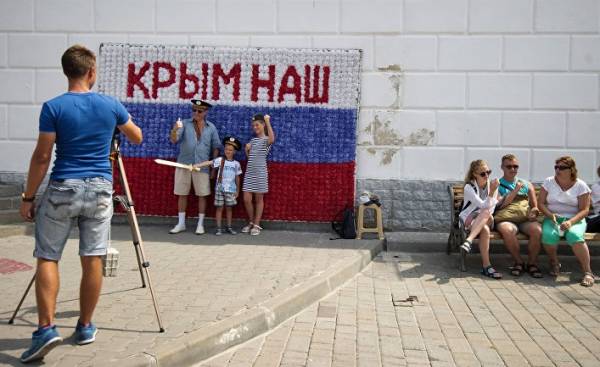
It was the Russian Imperial nationalism accidentally gave a chance to the Latvian national project. Modern Russia embodies the national ideals of the Third French Republic, and modern Europe uphold the values that a hundred years ago itself is easy and massively violated… Russian historians, the editors of the reputable international journal Ab Imperio Ilya Gerasimov and Marina Mogilner — that life is more complex than schemes, and it is therefore necessary to overcome the simple schemes in the perception of the past.
In Riga historians have come to a course “From the Baltic to the Pacific ocean: the General history of Northern Eurasia” as part of an educational project polycola the Cres, founded by a former Yukos lawyer Pavel Ivlev.
“Over the Empire, which for many years held together very different peoples and the land, — says Ilya Gerasimov. — I want to understand this experience. But it is impossible to tell about Russia, while remaining exclusively within the borders of modern Russian Federation and saying nothing, for example, about Kiev, Riga, Vilnius… There are still some General scene — from the Carpathians to the Far East, from the White sea to Turkestan, the interaction it was more than, say, Spain.”
You cannot look at Russian history through “the glory of Russian arms”. After all, before the end of the last century could not understand who the Russians are and what language they speak. In the Nizhny Novgorod region, the observation of the compiler of the Explanatory dictionary of Dahl, the people spoke so different Russian that not everyone knew each other. In other terms, these languages would be… We realize that the word “Empire” today is dangerously overloaded with meanings, and the proposal to establish a “shared history” can cause a negative reaction, saying that first you want to create a shared history, and then back to the borders of the Empire… It is not so, history is about the past.”
For 17 years, created by Ilya and Marina the journal AB Imperio published articles in Russian and English languages for more than thousand specialists of Northern Eurasia — from the countries of the former Soviet Union and abroad. One time AB Imperio published from Russia and was funded by grants from different funds — Soros, MacArthur, Carnegie. Now comes at the expense of the money received for the subscription. However, in the libraries of Russia the journal is sent free of charge. Despite the fact that Ilya Gerasimov and Marina Mogilner three years ago left Russia — they say that today they are safer to work in the United States. And it does not interfere with regularly to come back home.
— What you do not like how the Russian story today?
Ilya: This is done in the best traditions of the 50-ies of the last century, only ceasing to praise communism and to criticize the Jews.
In Russia, history textbooks sound like this: our ancestors, the Slavs, blue-eyed blondes, from the 9th century on their land went to its statehood, along the way battling with the encroaching upon her enemies…
From here and feet grow all the current manifestations of nationalism: our Slavs, other — alien, if the crisis in the country and its not enough — we need to kick all the other people. It’s a terrible imagination on the basis of “blood and soil”, alas, is still in force. Our objective is to offer a new language to talk about the past without ethnic cleansing and the silence…
In the early 2000s, we had an optimistic vision that our journal may become the basis for modern Russian history, based on a new methodology that we have eyes, a new generation of historians who are open to the world — everywhere I go, learn, watch, listen. We ourselves — from these: in the early 90s got basic knowledge at the University of Kazan, in ‘ 94 graduated with a master degree in Central European University of Budapest (then lectured many Western luminaries, who were interested in the post-Soviet space), and doctoral programs in the United States, having defended in Russia.
Marina: For many scientists the 90 years was a disaster, but we discovered a completely unique opportunity for that we are grateful to the Soros Foundation. Even students in 1992 we were in a competition of school textbooks which the education Ministry did with the money Soros was there, the Moscow bosses, and we got to the third level. Even then, we intuitively understood that we must fight thumb supply scheme of Russian history. However, as many historians of the 1990s, absolyutizirovat “facts” as an alternative to sociological models. For example, in the Chapter about the revolution of 1905 put an illustration… a diagram of the Assembly of the explosive device the terrorists. Today it would, of course, impossible!
In 1993 we received a grant for $ 300 for research — huge for those times money, by which learned English. Then, with the help of the Soros Foundation, he enrolled at the Central European University in Budapest… what to say, the Soros Foundation in the ‘ 90s helped to save the Russian science: Russian scientists have received research money, young — the chance to learn in an international summer school or to participate in the exchange program, library money on books, universities — good teachers were underpaid them Soros…
Ilya: We didn’t want our magazine was financed with the money of any state, it seemed logical that the publication about the history of Russia to go to Russia. So we did, until the authorities start a real fight with non-governmental organizations, after three inspections (Ministry of Finance, of justice and of the Prosecutor’s office), which yielded no results, but did not like to work, we decided not to wait, when we declared an enemy of the people…
Fortunately, the Marina received a professorship at the University of Illinois at Chicago, where he was popular knowledge in the field of Imperial history of a large region
— Throughout history, the Russian “pendulum” is not just swayed in the direction of European values, in reverse. What is the reason? When you have to wait again to visit us? Not the tanks, of course.
Ilya: We’re historians — we are not talking about the future… I was always offended by a myth about a “Imperial gene”, which causes her to swallow and to enslave all around. But just in the 90s, when the polls showed sympathy for the West and NATO, there is no “normal national unity” was not understood that we live in the country are very different people and sudden movements to do. Threat it has become in the 2000s, after the second Chechen war were able to realize the ideal of the Russian nation-state — that it swallowed the hook with the Crimea…
With regard to Western Europe, then this is the place where ethnic cleansing were when “can” was held in the 17th century. For example, in Provence in the South of France, the laws allow foreigners and infidels to burn. The Huguenots in France was executed in 1765. Talked to the Turks (the Ottoman Empire, which since the 19th century was called “the sick man of Europe”) that is necessary to protect religious freedom and Christians, and themselves Protestants, were executed and later machine-gunned the colonial people of Africa. That is, today, Europe stands for the values that a hundred years ago are easily broken. But it is one and the same Europe? Or different?
These are key questions of modern society: what do we do with outsiders, as defined by their own and might look like a new order. They are acute and in front of Latvia and to Russia, and to America to Europe. Especially in the background throughout the failed policy of multiculturalism. This problem has been a specialty of the Russian Empire. For example, Catherine the great understood this perfectly and wrote about uneven device multilingual, multi-religious and multicultural society, which she had to manage…
Now Russia is doing exactly the opposite — trying to build a homogeneous society. After all, there implement… the ideal of the Third French Republic, which arose because of the defeat of the Germans in 1871, and directly led to the first world. Russia is doing exactly the same. Turns out, she is this Europe that any longer.
Only late?
Ilya: Well, actually… for Example, in one of the regions of Russia, Tatarstan, where the Tatars now make up about half of the population, the Tatar language five times a week taught in school mandatory. Though taught pretty bad. Here you have Russian language five times a week in all the schools studied?
— Only in the schools of national minorities. And in Latvian schools only as a second foreign language.
Ilya: So one of us is late?
Marina: Look at Poland, with its current brand natsikovskim the regime and the rhetoric that marginalisiert everyone who is not Catholic and not a pole who left and dissident — is that a Europe or not? Europe is a set of values that continue to change.
Ilya: Western Europe, at different times, many criticized the decision of the Baltic national governments, that did not prevent the Baltic States to join the EU and… to continue in the same spirit. Or back to the poles: they got huge subsidies on agriculture from Europe and Germany, as refugees do not want to let because they can demolish their European values…
Trying to make a point: Russia is an exaggerated mirror of a stage-version of the idealized Europe of the late 19th century. In those days Russia was in many ways, more European than Europe. For example, the level of death sentences in comparison with Britain, in Russia there was actually a moratorium…
We must not be afraid of the fact that Russia is not in Europe, and the fact that she is now at a stage of building a territorial nation, which in the twentieth century happened in two world wars. That is, because the idea that one place with a stranger not fit physically. Interwar Europe was a common space of nationalization. Before Hitler occupied a country, many of them are already introduced anti-Jewish measures in the Hungary of the late 20-ies, to varying degrees in Lithuania and Latvia…
That is, today, Europe stands for the values that a hundred years ago are easily broken. But it is one and the same Europe? Or different?
This all the action of the “national program”, when the complexity of the world we will be closed in a simple way — a belief that a dangerous stranger. But all the detectives we know that the real perpetrator of the crime should be sought among the nearest family members.
Who is the most “pounded” under Stalin? Neighbors and relatives. But this is too disturbing a thought. We like to think that we are members of one body. That its never hurt, but these others — black, red, blue — the danger. “Crimea is ours”, “will scare the Estonians and Latvians” — all these slogans needed to ensure that people came together and felt the reality of the national body. It is, it’s strong and it’s got somewhere to move, to somehow compensated individual dissatisfaction with living conditions, income, social inequality, corruption and other things. Intuition tells us that if we don’t want cleansing in the country, it is necessary to send them outside.
— You said that trying to talk about history without ethnic cleansing in what sense?
Marina: We do not remove retrospectively any groups that played a role at a particular stage of history. For example, do not create a consistent history of the Russian nation, by scrubbing from the history of Northern Eurasia, the contribution of all the others, who we today think of non-Russians. On the contrary, talking about self-organization of very diverse people over a wide area.
Ilya: In particular, we do not speak the language of the national stories which pretend that in the 18th century the Baltic sea was Latvian or Estonian nation-state… In fact, with the advent of the Russian Empire to the local elite, little has changed — the Baltic barons and burghers continued to communicate in German language with more difficult learning Russian. But the Russian began to actively learning German. To some extent ostseite was even better — they were in large, stable, rich with opportunity career world. For the Latvian farmers the arrival of the Empire also little changed — they the Russian government almost never seen, while continuing to deal with his barons.
When in the early 19th century in the Russian Empire decided to create a modern code of Civil law (modeled on the Napoleonic code), the Empire was not a single professional lawyer. Dorpat subjects of the Empire, graduates of German universities, was invited to St. Petersburg for analysis of existing laws, which they had first to translate into German.
So what about the Russian yoke in these parts is pretty pointless. But this is not to say that there was no imperialism and acquisitions. The average temperature in the hospital in historical science is meaningless. It is necessary to consider specific situations, changing contexts, different people, different groups. It’s very hard to tell a story in multiple dimensions, to simplify it, not to deny its intrinsic multidimensionality. We know from experience that life is more complex than any of the schemes, it is therefore necessary to overcome such simple circuits in the perception of the past.
Clearly we fix that at some point the Russian Empire adopts the ideology of Russian-ness, and in this national project of the Baltic barons, at that time, absolutely integrated into the Imperial elite and brings her considerable intellectual capital, suddenly begin to feel themselves second-class citizens.
Marina: They deliberately alienate, because (is!) they speak German and are focused on other ideas about how to working class institutions. This is a clear example of how the Empire alienates group, which can integrate, because the government begins to see the Empire as a space of identity. By the way, this gave a chance to the promotion of the Latvian national project — it happened accidentally.
Ilya: the Latvians got more favors from the Empire, in defiance of the Baltic barons.
They say to move the German elites, will rely more on local Latvian leaders — their rise will be required of the Russian Empire, and therefore will be more loyal.
The calculation was justified: the Latvian elite was a large claim to the Germans and had no desire to integrate them in their structure, though they were local, indigenous.
But today in Latvia the attitude of the Germans is much better than Russian!
Marina: sad Soviet experience — fresh…
Ilya: But how many today remember how in 1939, Latvia was kicked out of here most of the Germans were very tough and in a short time?
— Not very many.
Ilya: So was the local German elite — and did not. Though it was the Germans of Riga and founded. And then the terrible expulsion 40 years struck the Latvians. But after 1991, the Russian inhabitants were undesirable citizens. The same thing is happening today in Russia, which is increasingly turning into a Russian national state, more or less tolerant belonging to “ethnic minorities” — the same citizens, as well as Russian. This story will be endlessly repeated until people believe in the territorial nation (living on a special “historical territory”) and that “national body” should be cleaned from all “foreign elements”. In reality, different people in different times lived on a given territory, and even considered it his.
— Somehow immediately reminded of the recent statement of our national Deputy Edwin Schnoor with its pre-election quote of the Minister of public Affairs in pre-war Latvia about how hard it is to clean out the “Russian lice from the fur.”
Ilya: It is therefore not necessary to forget about the times when Germans were not very friendly to the Latvian peasants, and then the Latvian peasants not have done well against the Germans. This greatly changes the “clean image”. The past does not determine and does not predict the future, but when you see the multidimensional picture of the past, and the present are perceived differently. Understand that you cannot assign second-class people, not considered “minority,” etc.
The European concept of minorities is beautiful, but it is formed in relation to another concept of the titular nation — who invented the proto-fascist French writer of the 90-ies of the 19th century Maurice Barres. The logic is this: if the population is 51% of representatives of one nationality, it is mathematically most. And 49% is what, then, are not people? But in the 20th century all somehow believe in a mathematical majority. But if we believe that in modern society every person is a value in itself, this arithmetic is meaningless. This conclusion flows not from the past but from the new view of the world. And anyway, it’s time to stop the people of the XXI century to live the concepts and to talk about the past and present (not to mention the future!) in the language of the twentieth century.
— And here I would like to ask the perennial question: what do you think of when you hear “Krymnash”? What can you respond to the arguments from the “it is historically Russian” and “he poured Russian blood”?
Ilya: In my opinion, it makes no sense to discuss whether it is possible to steal a silver spoon. There must be some Foundation of legal consciousness: well, not to steal and break contracts.
Marina: As historians we do not tire of repeating: history does nothing to legitimize the present. Well, what kind of Russian blood are we talking?! The blood there shed the Imperial army. And the population in the Crimea was very different. If you develop this logic, Crimea should give the Crimean Tatars or try to find who was there first — not exactly Russia. This is a dead end logic. All contracts over Crimea legitimate and clearly say that it belongs to Ukraine. There is no space for dispute.
If the state in which identificireba with Russian culture, wants to support the Russian-speaking population of the Crimea, there are hundreds of ways how to do it. You can give incentives to graduates of the Crimean schools to study in the best universities of Russia, you can send library in Russian, you can invest in the image of Russian culture in the Crimea.
Krymnash is a manifestation of contemporary Russian nationalism.
People give a sense of integration into a powerful national body, even inside it they did not decide, on what does not influence and does not get richer under the Golden rain of oil pipes. But there is evil Putin, who is all show. Yes, it does not help, so let it be parrots.
— After the Crimea in Latvia conducted the survey for whom the local Russian, if in Latvia will come the Russian tanks. In this regard, who stayed in Riga Director and historian Alexander Sokurov said: “the Russians have always only protect what they love. If your authorities are unable to make them love the EU they are not to protect her”…
Marina: This is normal human logic. And it concerns not only Russian. In Ukraine of her independence happened: solidarity of the Ukrainians, who love Ukraine.
— Probably easier for Ukrainians love Ukraine than non-citizens — Latvia…
Marina: the situation of non-citizens is a consequence of the ideas about homeland as a national state in which there is a titular nation and limited the rights of non-titular minority. Harmful logic, from where you want to go.
Ilya: Unfortunately, this logic is very tenacious. For example, in Ukraine steadfastly the notion that there is a native Ukrainian and have a good Ukrainian Jew who now supports Ukraine. But really, why should they share? Ukrainian Jew — same Ukrainian, as Ukrainian Slavic roots. And the argument that Ukrainian Jews are still in Palestine, some national land is irrelevant to the fact that they are local on earth is now Ukraine, like other Ukrainians.
Marina: the Logic of the titular nation — a dead-end and outdated. To answer your question: if in Latvia believe that the Russian — as the inhabitants of the country, as the Latvians, then only one conclusion — they will defend Latvia. And if they do second-class citizens or even “good Russians”, they will feel humiliated and see the alternative to the tanks.
Ilya: Unfortunately, your question once again prove how we all live in history and we need a historical precedent to justify actions in the present. This is the easiest and cynical mechanism that is used by politicians… fortunately, not all historians are engaged in political prostitution-that is, cynically support the regime or inspired some kind of national project.
Summer course “a New Imperial history of Northern Eurasia” in Russian language was conducted on the basis of Riga, Baltic Center for Educational and Academic Development, together with KRES Poliskola and Ab Imperio.



